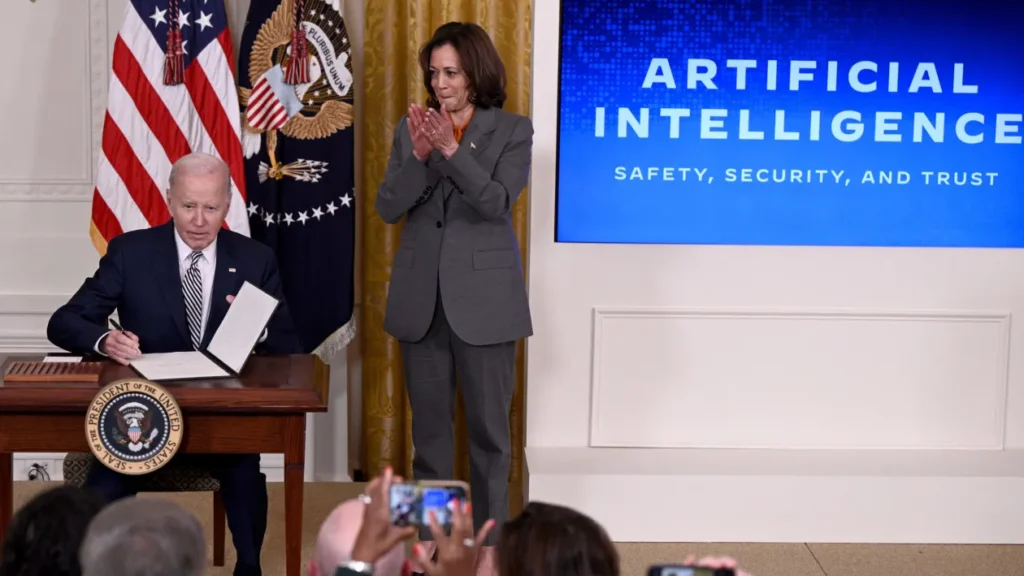
In a landmark move, President Biden’s administration has announced a comprehensive set of regulations designed to address the increasing risks posed by artificial intelligence (AI). As AI technologies continue to advance rapidly, these new rules are aimed at safeguarding privacy, ensuring ethical practices, and protecting American citizens from the potential dangers of unchecked AI development. The regulations come as a response to growing concerns over the impact of AI on everything from job markets to cybersecurity and human rights.
Addressing Privacy Concerns
One of the central focuses of the Biden administration’s AI regulations is protecting the privacy of American citizens. In an era where AI-driven systems collect and analyze vast amounts of personal data, there is a heightened risk of privacy breaches. From facial recognition technologies to data-mining algorithms, AI has the ability to access sensitive information without sufficient safeguards.
Under the new regulations, AI companies will be required to implement more stringent data protection measures. These rules will ensure that AI-driven systems only collect necessary data and that any collected data is anonymized where possible. Additionally, users will have greater transparency and control over how their personal information is used.
Ensuring Ethical AI Use
Ethical concerns surrounding AI development and use have long been debated, especially when it comes to bias and discrimination. Many AI algorithms have been found to perpetuate racial, gender, and socioeconomic biases, leading to unfair outcomes in fields like hiring, lending, and law enforcement. The new regulations will mandate thorough auditing of AI systems to ensure they are free from biases and comply with ethical standards.
Furthermore, the Biden administration is putting in place guidelines to regulate the development of AI technologies used in critical sectors, such as healthcare, finance, and national security. The goal is to prevent unethical AI applications that could endanger lives or national security.
Mitigating AI’s Impact on Jobs
As AI continues to automate tasks across industries, concerns over job displacement have risen. While AI has the potential to increase efficiency, it also threatens traditional employment sectors by replacing human workers with automated systems. In response, the new regulations encourage the tech industry to adopt policies that retrain workers and integrate AI technologies in a way that creates new opportunities rather than eliminating jobs.
Strengthening AI in National Security
AI’s influence on national security cannot be overstated, with autonomous weapons systems, cyberwarfare, and AI-enhanced surveillance presenting both opportunities and risks. As part of the Biden administration’s efforts to safeguard national security, the new regulations will enforce stricter oversight of AI technologies that have military and defense applications. This will include collaboration with international partners to establish global norms and prevent the misuse of AI in warfare.
Conclusion
The Biden administration’s move to introduce AI regulations marks a significant step toward ensuring that the technology is used responsibly and ethically. With these new rules, the U.S. government is addressing growing concerns over privacy, bias, job displacement, and national security risks. As AI continues to shape the future, these regulations aim to create a framework that balances innovation with the protection of citizens and society at large.
image source – Getty Images


